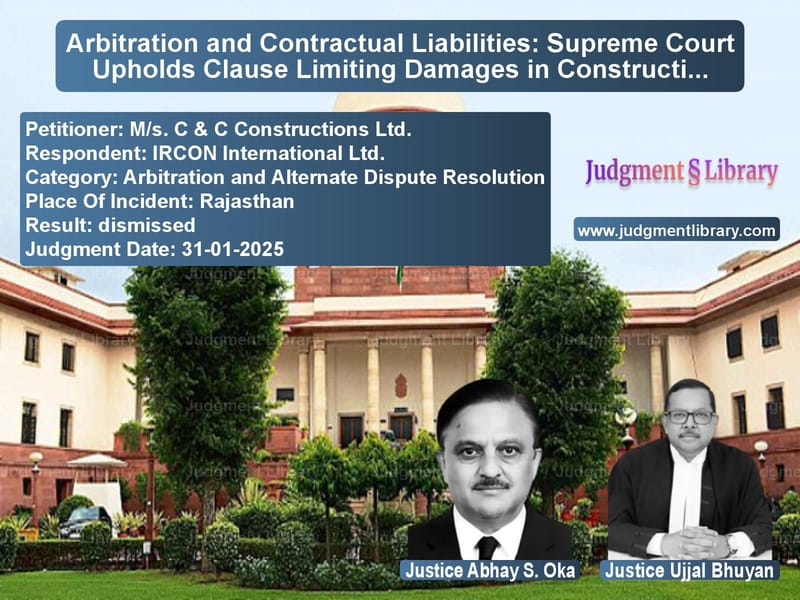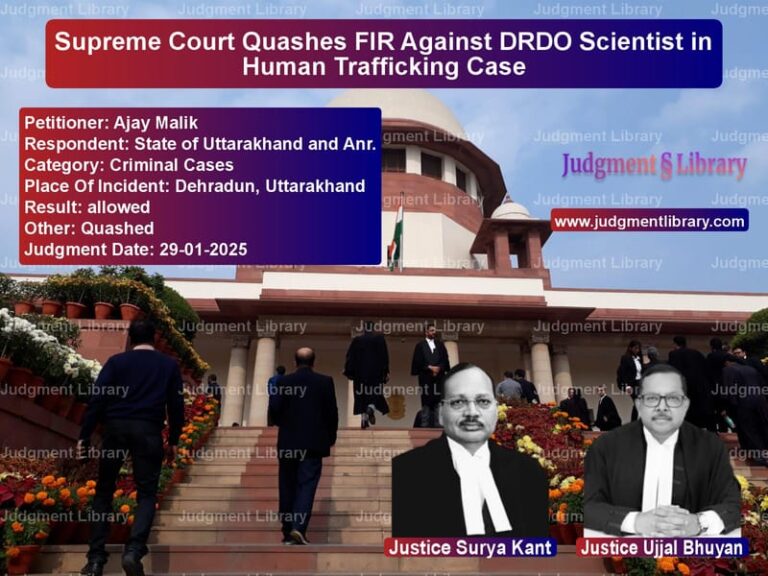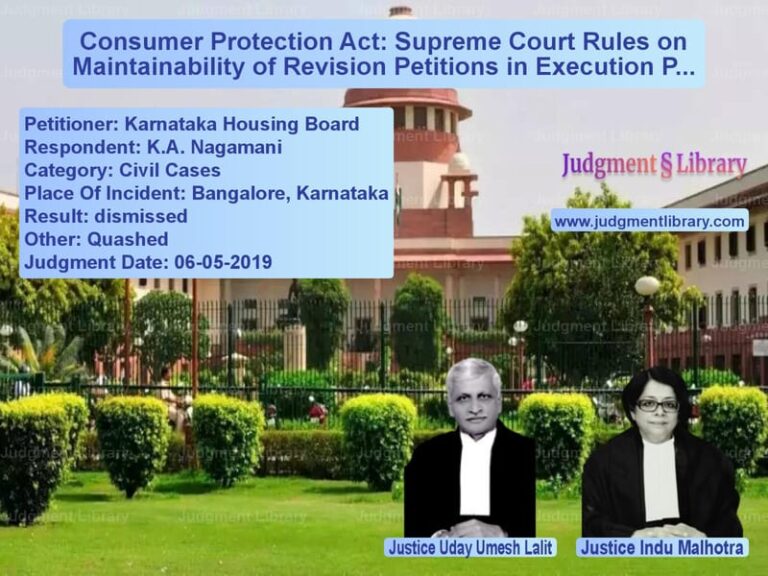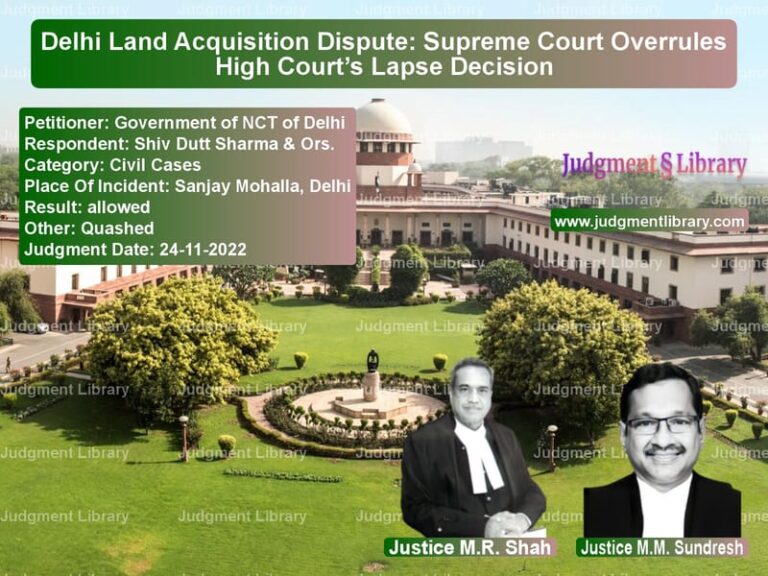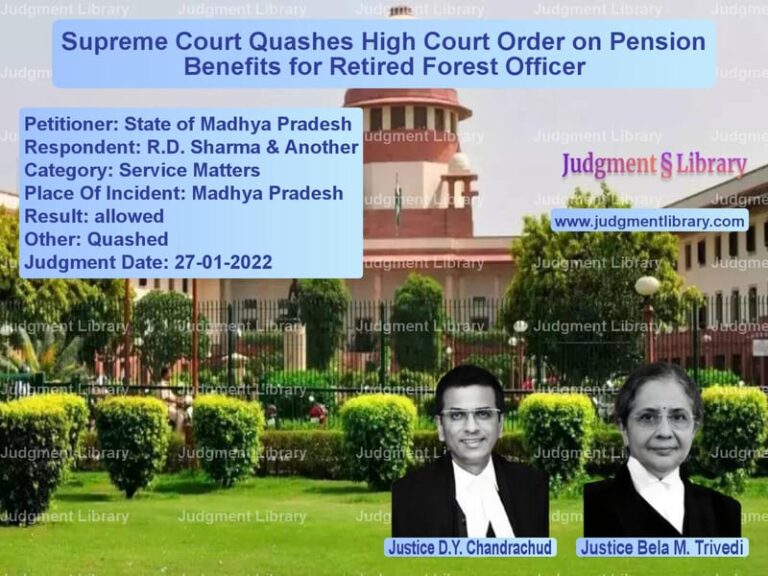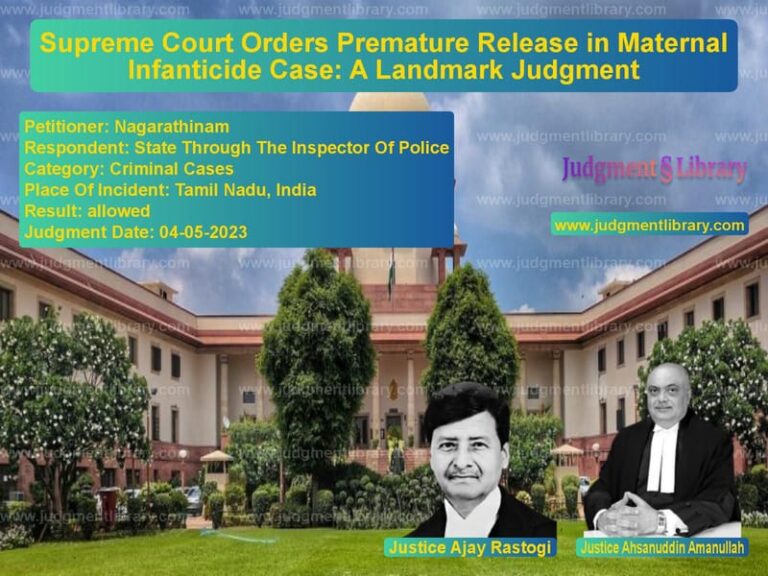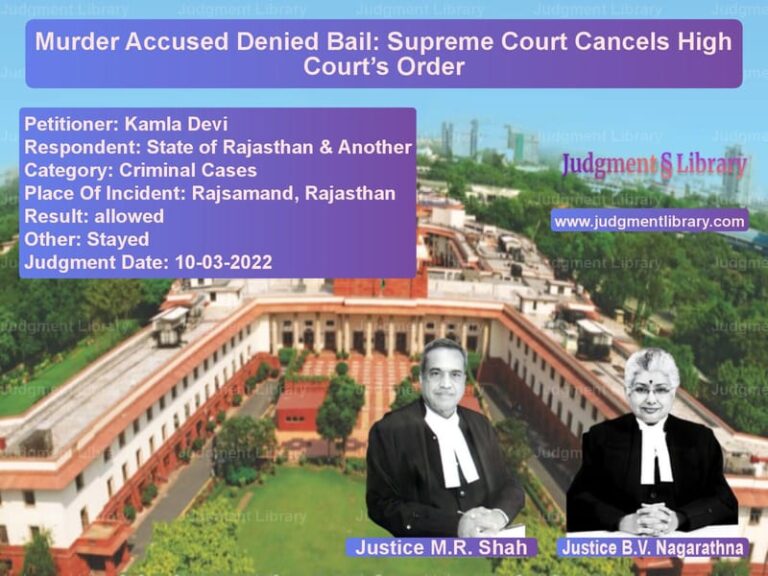Arbitration and Contractual Liabilities: Supreme Court Upholds Clause Limiting Damages in Construction Dispute
The Supreme Court of India recently delivered a significant judgment in the case of M/s. C & C Constructions Ltd. vs. IRCON International Ltd., which has far-reaching implications for contractual disputes, arbitration proceedings, and the enforceability of limitation of liability clauses. This case primarily dealt with the rejection of financial claims made by the appellant due to the presence of a contractual clause restricting damages and compensation. The Supreme Court upheld the principle that arbitration awards must be respected and that commercial contracts are to be interpreted strictly based on agreed terms.
Background of the Case
The case originated from a contractual agreement signed between M/s. C & C Constructions Ltd. (the appellant) and IRCON International Ltd. (the respondent) on June 28, 2012. The agreement concerned the construction of five Road Over Bridges (ROBs) in Rajasthan. However, due to delays in project execution, disputes arose regarding time extensions and additional financial claims made by the appellant.
The factual highlights of the case are as follows:
- The project suffered from delays, which the appellant attributed to the respondent’s actions.
- The respondent granted time extensions but did so under Clause 49.5 of the General Conditions of Contract (GCC), which explicitly stated that delays caused by the employer would not entitle the contractor to compensation.
- The appellant accepted these extensions and provided written undertakings that they would not claim additional damages.
- Despite this, two years later, the appellant invoked arbitration, seeking damages amounting to Rs. 44.11 crores.
The arbitration tribunal rejected the appellant’s claims, citing the enforceability of Clause 49.5, and this decision was subsequently upheld by both the Single Judge and the Division Bench of the Delhi High Court under Sections 34 and 37 of the Arbitration and Conciliation Act, 1996.
Petitioner’s Arguments
The appellant raised several key arguments before the Supreme Court:
- Violation of Public Policy: The arbitration award was contrary to public policy as it enforced an unfair contractual term.
- Illegality of Clause 49.5: The clause should not be enforced as it contradicts Sections 23 and 28 of the Indian Contract Act, 1872, which prohibit contracts that restrain legal rights or encourage unfair transactions.
- Right to Compensation: The appellant argued that the contractual obligations of the respondent included timely completion of work, and its failure to do so entitled the appellant to damages.
- Previous Judicial Precedents Ignored: The appellant cited past rulings where similar limitation of liability clauses were struck down for being against the principles of justice and equity.
Respondent’s Arguments
The respondent defended the rejection of the appellant’s claims on several grounds:
- Contractual Obligations Must Be Upheld: The appellant had voluntarily agreed to the terms of the contract, including Clause 49.5.
- Enforceability of Limitation of Liability Clauses: Such clauses are standard in commercial contracts and have been upheld in previous Supreme Court judgments.
- Waiver of Claims: The appellant had provided written undertakings that they would not claim damages beyond the agreed price variations.
- Finality of Arbitration: Courts should not interfere with arbitration awards unless they violate fundamental legal principles.
Supreme Court’s Observations and Ruling
The Supreme Court ruled in favor of the respondent, upholding the arbitration tribunal’s decision and rejecting the appellant’s claims. The key observations made by the Court included:
- Binding Nature of Contractual Terms: The Court emphasized that contracts must be interpreted as per their agreed terms, and parties cannot renege on commitments post facto.
- Enforceability of Limitation Clauses: Clause 49.5 was found to be legally binding, and its inclusion in the contract precluded any additional claims for damages.
- No Violation of Public Policy: The Court ruled that enforcing a contractual term that limits liability does not violate public policy, as long as both parties willingly agreed to it.
- Finality of Arbitration Decisions: Courts should refrain from interfering in arbitration awards unless there is clear evidence of procedural misconduct or violation of fundamental legal principles.
- Appellant’s Conduct: By accepting time extensions under Clause 49.5 and providing undertakings, the appellant was estopped from later making claims that contradicted its prior commitments.
Final Directions Issued by the Supreme Court
- The appeal was dismissed, affirming the validity of the arbitration award.
- The appellant was directed to honor its contractual obligations and cease further claims.
- All future contractual disputes in similar cases must strictly adhere to the terms agreed upon by both parties.
Implications of the Judgment
The judgment sets an important precedent in contract law and arbitration:
- Reinforcement of Contractual Sanctity: This case reinforces that commercial contracts must be strictly enforced as per their terms.
- Judicial Restraint in Arbitration Cases: Courts will only intervene in arbitration awards in cases of extreme illegality or procedural errors.
- Clarity on Limitation of Liability Clauses: This ruling affirms that such clauses are enforceable, provided they are explicitly agreed upon.
- Waiver of Claims is Binding: Written undertakings provided during contract execution are legally binding and cannot be undone later.
This case is a crucial reminder for businesses and contractors to carefully review and negotiate contract terms before execution. The Supreme Court’s decision highlights the importance of understanding contractual obligations and respecting arbitration processes.
Petitioner Name: M/s. C & C Constructions Ltd..Respondent Name: IRCON International Ltd..Judgment By: Justice Abhay S. Oka, Justice Ujjal Bhuyan.Place Of Incident: Rajasthan.Judgment Date: 31-01-2025.
Don’t miss out on the full details! Download the complete judgment in PDF format below and gain valuable insights instantly!
Download Judgment: ms.-c-&-c-construct-vs-ircon-international-supreme-court-of-india-judgment-dated-31-01-2025.pdf
Directly Download Judgment: Directly download this Judgment
See all petitions in Arbitration Awards
See all petitions in Contract Disputes
See all petitions in Enforcement of Awards
See all petitions in Judgment by Abhay S. Oka
See all petitions in Judgment by Ujjal Bhuyan
See all petitions in dismissed
See all petitions in supreme court of India judgments January 2025
See all petitions in 2025 judgments
See all posts in Arbitration and Alternate Dispute Resolution Category
See all allowed petitions in Arbitration and Alternate Dispute Resolution Category
See all Dismissed petitions in Arbitration and Alternate Dispute Resolution Category
See all partially allowed petitions in Arbitration and Alternate Dispute Resolution Category

